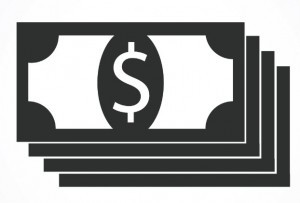 When clients ask, “how much does a lawyer cost,” the answer can vary from $150 to $350 or more per hour. But if you’re facing a legal issue, working with a lawyer is very helpful and can affect the outcome of the case. Before hiring a lawyer, you should talk to him or her about fee schedules, flat-rate vs. hourly billing, retainer vs. contingency fees, and a ballpark estimate of the total cost based on the case.
When clients ask, “how much does a lawyer cost,” the answer can vary from $150 to $350 or more per hour. But if you’re facing a legal issue, working with a lawyer is very helpful and can affect the outcome of the case. Before hiring a lawyer, you should talk to him or her about fee schedules, flat-rate vs. hourly billing, retainer vs. contingency fees, and a ballpark estimate of the total cost based on the case.
As you consider how much a lawyer will cost, think about how much you have to spend and what the outcome is worth to you.
For example, if you’re thinking about taking legal action against a local business that did not repair your refrigerator properly, do you have enough money available to hire a lawyer, present evidence, and get the court to rule in your favor? Even if you do have enough money, is the overall cost of replacing the refrigerator or having someone else repair it worth the trade-off?
If you decide to move forward with legal action, or you need assistance with a legal matter, ask all potential lawyers that you meet with about their billing practices and fees. If the lawyer is not willing to discuss the costs with you, it’s a sign of poor client service.
Most lawyers bill under one (or several) of the following arrangements:
- Hourly rate: this is the most common way for a lawyer to bill. This process requires careful documentation of all time spent working on documents, reviewing case files, presenting information in court, and any other tasks related to the client’s case. The client and lawyer will agree on the hourly rate before getting started with the case.
- A lawyer’s hourly rate varies drastically based on experience, location, operating expenses, and even education.
- Retainer fee: many lawyers require a retainer fee up front, which is something like a down payment on the case. As the lawyer works on your case, he or she will deduct the costs from the amount you paid and send you periodic invoices showing the deductions.
- If you drop a case for which you have already paid a retainer fee, it is most likely non-refundable.
- Flat fee: a lawyer may offer a flat fee for a specific, simple, and well-defined legal case. Examples of cases eligible for flat fee billing include uncontested divorces.
- Before agreeing to a flat fee, make sure you understand what is covered in the agreement. It may not include filing fees or other fees associated with the legal process, so you’ll need to plan accordingly.
- Contingency fee: a lawyer may offer this type of billing in a personal injury case. With a contingency fee, the client doesn’t pay until the case is resolved. Upon resolution, the contingency fee is a percentage of the settlement or money awarded on behalf of the attorney’s client.